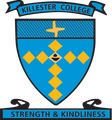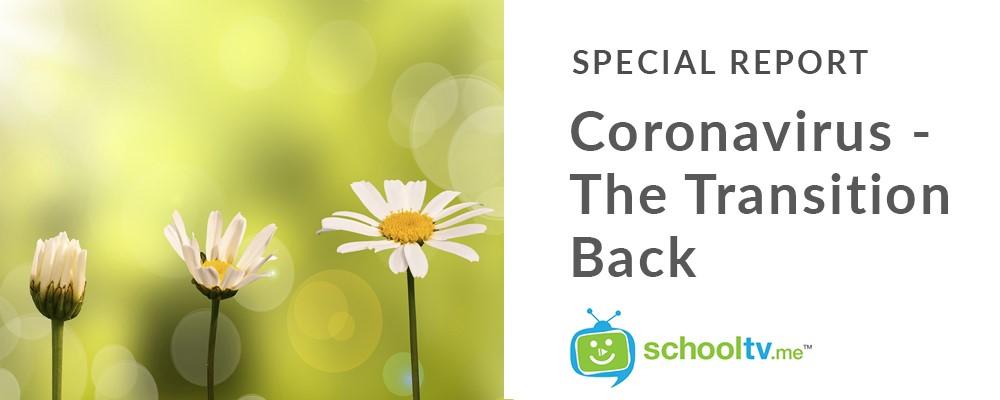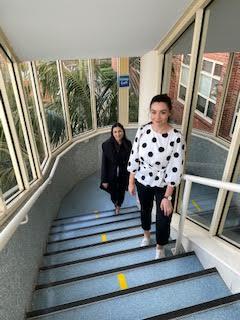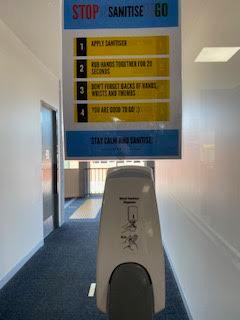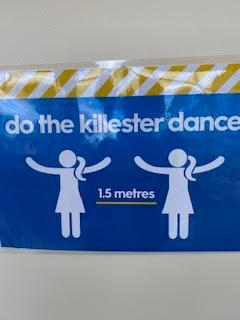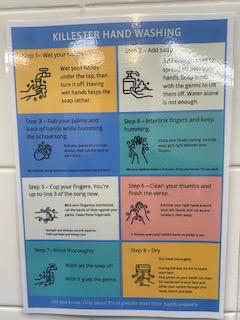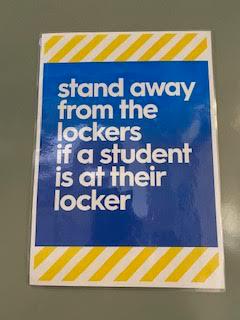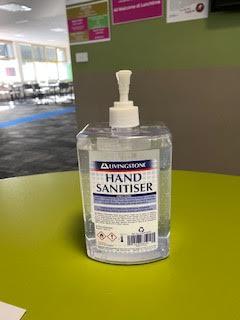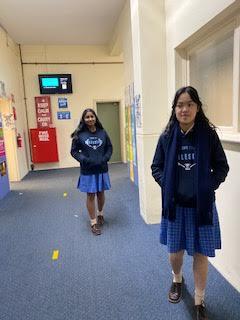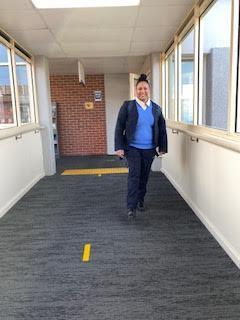Wellbeing

Dear Parents and Friends,
As lockdown restrictions are slowly being lifted to varying degrees, we enter a time of transition and adjustment. The circumstances of this situation have significantly impacted us all. For some it has been an opportunity to reflect on what is important, whilst others have embraced the opportunity to learn new things. Many young people may be excited at the prospect of restrictions being lifted; others may feel mixed emotions. Reactions will differ depending on how well they cope with stress and change. Keeping a check on your child’s mental health and wellbeing as they adjust to new routines, will be vitally important. There is still a lot of uncertainty ahead of us, so focusing on the things you can control or enjoy doing or even value, can help establish predictability and familiarity for the whole family. Adult carers need to provide young people with reassurance by acknowledging any concerns and fears they may have at this time. Consider this to be a normal reaction, however it may be best to focus more on their feelings and emotions, rather than the practicalities at this stage. In this Special Report, we share a few ideas to help ease this time of transition and adjustment. We hope you take time to reflect on the information offered in this Special Report, and as always, we welcome your feedback. If you do have any concerns about the wellbeing of your child, please contact your daughter’s Homeroom Teacher and/or Student Development Leader for assistance.
Here is the link to your special Report
https://killester.vic.schooltv.me/wellbeing_news/special-report-coronavirus-transition-back
Years 7-10 students return to school on June 9 and each Year Level Team has planned transitioning back to school activities for the first two lessons of the day. Homeroom teachers will outline school return protocols for safety and conduct wellbeing activities.
This article may also assist parents to prepare their daughter’s return to school.
Successfully transitioning students back to school
The recent home-schooling experience of Australian students is about to end with most states and territories transitioning kids back to school. For parents, many of whom have discovered just how complex teaching can be, the return to school will be a welcome relief. For children, going back to school may bring a mixed bag of feelings. Eager anticipation about reconnecting with friends and teachers will probably be accompanied by a level of anxiety about what school may be like upon return.
School undoubtedly will be a dierent experience for students post COVID-19. For a start they’ve just experienced a prolonged period of remote learning and an absence from their friends, which will take time to process when they return to school.
With organised extra-curricular activities put on hold most children have had a great deal of free time, which has placed the locus of control firmly in their hands. I suspect many kids will grieve their lack of freedom, as they’ve had a glorious glimpse of what an unstructured life is like. It may take some time for them to get back into the swing of school life.
With the return to school imminent here are some sensible strategies to make adjustment easier for students.
Get ready for a return
Worriers and anxious types in particular like to know what’s ahead so your approach will make a difference. Prepare your child for a return by discussing the safety procedures the school will be implementing. Let young children know that an adult won’t be accompanying them past the school gate. Ask your child what they are looking forward to and check in with how they are feeling about a return. Validate any fears and apprehensions and correct any misconceptions.
Go slowly
This period will mirror the start of the school year when your child had to adjust to new teachers, different classmates and a new year level. Adjusting to change takes a great deal of personal energy, so you child or young person may become tired, grumpy, even moody at home. Make allowances for these personal changes and make sure they have plenty of free time to unwind after school.
Focus on reconnection
Make reconnection the theme for your child’s return to school. He or she will have to reconnect with friends, teachers and learning, which takes time. In all likelihood, your child’s teachers will use many strategies to help your child connect with their friends, reflect on their time at home and move them back into full-time learning mode. Support these activities and keep your learning expectations for your child in check.
It may take the rest of the term for some children to adjust to their life back at school.
Stay calm
Anxiety is very contagious, so it’s easy for us as parents to take on our children’s worries and fears. The reverse is true, and kids can pick up our worries, taking them on as their own. As a buffer against anxiety ensure you do something each day that brings you some joy, whether it’s listening to music, going for a walk or having a coffee with a friend.
Look after yourself
In recent months parents and teachers have been doing significant emotional labour. The learning and adjustment curves have been massive, with little time to relax and take a break. Consider your own emotional resources and make your wellbeing a priority, which will make it easier for you to stay calm if your child experiences difficulties.
Communicate confidence
It’s a fine line that many parents walk between being flippant (‘you’ll be right’) and showing confidence (‘you’ll do okay’) when kids struggle to adjust to change. My research into childhood anxiety reveals that children and young people want parents and teachers to understand their fears and anxieties, and to coach them to negotiate diiculties including adjusting to change. You can support your child through sharing stories of resilience, focusing on the positives and letting them know that will eventually adjust. The COVID-19 pandemic has thrown up many difficulties requiring us all to quickly adapt to new situations. Flexibility is a prime characteristic of resilient people, so if nothing else, getting through these challenging times will make us all more resilient.
Michael Grose
Michael Grose, founder of Parenting Ideas, is one of Australia’s leading parenting educators. He’s an award-winning speaker and the author of 12 books for parents including Spoonfed Generation, and the bestselling Why First Borns Rule the World and Last Borns Want to Change It. Michael is a former teacher with 15 years experience, and has 30 years experience in parenting education. He also holds a Master of Educational Studies from Monash University specialising in parenting education.
Meanwhile at Killester this week, we welcomed back our senior students. It was a day of celebration with almost every Year 11 and 12 student present. Below are some of our students walking through our school grounds displaying the range of signage and protocols in place to keep all students and staff safe on return to school.
Wishing all families a good week
Keep safe
Ms Luana Doko
Student Wellbeing Leader
